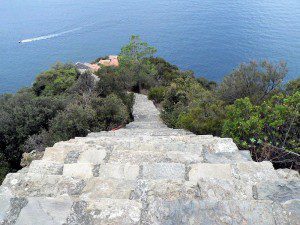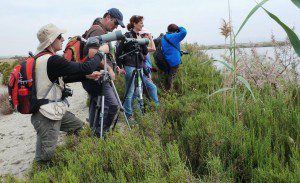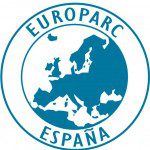Workshop – Mediterranean forest management and Natura 2000
Mediterranean Forest © David Morris www.flickr.com/photos/davidjmorris/
Under the framework of the Natura 2000 Biogeographical Process for the Mediterranean Region, Parc naturel regional du Luberon will host an interesting workshop focused on current issues in Mediterranean forest management, between the 9th – 11th May 2016.
During two days, participants will learn about integrated management approaches that benefit both forestry and nature conservation through plenary sessions, field trips and interactive sessions. The challenges and opportunities of promoting ecological connectivity through ntegrated planning will be the main discussion topic. Therefore, to provide participants an overview of European implemented systems, professionals from France, Portugal, Italy and Greece will share their expertise and local experiences on the management of Mediterranean forests.
A draft version of the programme is already available and can be downloaded below.
For registrations and further information please contact ECNC to natura2000platform_at_ecnc.org
About the Natura 2000 Biogeographical Process
The Natura 2000 Biogeographical Process is developed by the European Commission and involves a network of people and organisations, which EUROPARC Federation is part of. The Federation seeks to ensure the experience of our members in the front line of Protected Area management is recognised. Check the latest updates on the Natura 2000 Biogeographical process here.
Cinque Terre NP: A current challenge for quality tourism
Cinque Terre National Park © Marzia Vivaldi
The Cinque Terre National Park, located in northwestern Italy within the Liguria region, is one of the most famous destinations because of its scenic landscape and spectacular hikes facing the see, attracting tourists worldwide. In 2015, the Cinque Terre NP was awarded with the European Charter for Sustainable Tourism in Protected Areas (ECST), committing itself in a 5 years strategy and action plan, following the principles and guidelines of the ECST.
Safeguarding the natural and cultural values of European parks whilst enhancing the quality of tourism is the main aim of the ECST.
The Cinque Terre NP, together with its stakeholders, drafted its strategy based on their current situation. For instance, while many parks are eagerly working to increase the number of tourists, Cinque Terre NP is working to better managing the current visitors’ flow. Limiting the daily number of accesses is one of the measures that will better preserve the sensitive hiking trails on the steep cliffs and will also improve the safety conditions for tourists. Finally, the measures will enhance the perceived uniqueness of the Park and the quality of the tourists’ experiences. The Park President, Vittorio Alessandro, stated that this could also be an opportunity for increasing tourism in other scenic areas of the Liguria region.
The Journey towards a Sustainable Destination
The ECST is often defined as a journey. The management of a sustainable destination is a sensitive situation, bringing together the various interests of local stakeholders. Cinque Terre is

Monesteroli © Cinque Terre National Park
managing this process together with the local and regional entities through the Charter Forum. This is an essential structure, which enables the participation of different actors in finding a common solution for the territory.
Reducing the quantity, enhancing the quality. This is an interesting example arising from our Charter network, which EUROPARC supports, and can serve as a reference for other parks facing similar challenges. We look forward for the future developments and encourage you to visit their website: www.parconazionale5terre.it
Read also Alessandro Vittorio’s statement and an article published by the Independent.
Learn more about the Charter for Sustainable Tourism in Protected in the brochure “Good for Parks, Good for People”
Alfred Toefper Scholarship: Call for submissions
Young professional in protected areas and graduated students (under 35) can now apply for the 2016 edition of the Alfred Toepfer Nature Heritage Scholarship!
This scholarship aims to provide a field tour to an European protected area to investigate about:
- Biodiversity and Climate Change – impacts and challenges for Protected Areas
- Sustainable Development in Protected Areas – social and economic benefits for all
- Opportunities for Health and Well-being in Protected Areas
- Parks for People – strategies to involve people in Protected Areas.
The deadline for applications in on the 14th May. Here you can find the complete schedule.
Steps for the application:
- Read the guidelines and check if you are eligible (in particular in the list of countries)
- Fill in the application form here
- Upload your application documents here (template to be downloaded here)
The Charter for Sustainable Tourism in Spain
Cabañeros National Park
By Javier Gómez-Limón Garcia. Expert of EUROPARC-Spain and Responsible for the ECST in Spain. (ALSO AVAILABLE IN SPANISH BELOW)
Phase I, Awarding protected areas (Sustainable Destinations).
Spain is the European country with the highest number of protected areas awarded as sustainable destinations, with a total of 42. The Spanish environmental authorities have opted for the ECST that effectively links conservation, sustainable tourism and local development. The re-evaluation of the ECST, for some areas, is proving being a complicated process. However, the new strategy of the EUROPARC Federation, with a new procedure for the re-evaluation and an amnesty until December 2017, surely will help clarifying the situation.

Delta Ebro National Parque, Spain
Phase II, the awarding of Charter local tourism businesses (Sustainable partners in Charter areas)
The awarding of the Charter local tourism businesses in Spain has proved being very successful. There are now more than 400 awarded companies in 27 protected areas.
In a study, recently developed by EUROPARC-Spain about the opinion of these companies on the Charter, it is highlighted how the project has achieved its objectives, as the companies recognized a “significant improvement in the relationships and in the connection with managers of protected areas” and how this “has favoured a higher quality of the offer and information provided to visitors”. Also, a significant contribution of the Charter on improving the environmental performance of companies is observed, such as:
– Reduced costs associated with the use of resources (energy, water, etc.).
– A considerable improvement in waste management.
It has also increased and diversified the training offered to businesses, which is another objective of the project.
On the negative side, companies highlighted missing direct improvements in access to grants and subsidies for seasonal tourism and the promotion of the Charter. They had not noticed a significant increase in economic activity through tourism. No doubt all these aspects should improve in the future.
Phase III, the awarding of tour operators (Sustainable tour operators in Charter areas)
EUROPARC-Spain launched in 2014 a working group to develop the Spanish awarding system for sustainable tour operators in Charter areas.

Birdwatching at Cabo de Gata Nature Park, Spain
The group had been working on the text of the new awarding system for over a year. This group consisted of representatives of EUROPARC-Spain, regional and national tourism administrations, technicians – staff of Charter protected areas, tourism operators associations, travel agencies and tour operators.
In October 2015, the EUROPARC Federation Council approved the awarding system. The objectives of this system are:
- Encouraging the marketing of tourism in protected areas fulfilling the ECST principles, and therefore contributing to the conservation and local development.
- Contributing to the recognition of the benefits of this specific offer for conservation and local development.
- Improving the visibility and recognition of the sustainable destinations and the sustainable partners that have made a continuous commitment to work for sustainable tourism.
- Recognizing and differentiate the travel agencies for their volunteer commitment on sustainable tourism development in protected areas in which they operate, giving them the opportunity to collaborate with environmental authorities, territories and benefit from the joint work on the preparation of unique and attractive offers for tourists.
The system will start being applied during the first months of 2016, when the first travel agencies will adhere.
To learn more about The European Charter for Sustainable Tourism in Protected Areas download the brochure below.
To contact Javier Garcia please follow the link www.redeeuroparc.org.  Section EUROPARC Spain
Section EUROPARC Spain
Por Javier Gómez-Limón García. Técnico de EUROPAC-España y responsable de la Carta en el Estado español.
Fase I, la acreditación de los espacios naturales protegidos (Sustainable destination).
España es el país europeo que más espacios protegidos tiene acreditados con la Carta, con un total de 42. Las administraciones ambientales españolas han apostado por este proyecto que vincula conservación, sostenibilidad turística y desarrollo local. La renovación de esta acreditación, para algunos espacios, está resultando un proceso complicado. La nueva estrategia de la Federación, con un nuevo procedimiento para la reevaluación y una amnistía, para la renovación de la acreditación de estos espacios, hasta diciembre de 2017, seguro que ayudará a clarificar la situación.
Fase II, la adhesión de las empresas a la Carta (Sustainable partners in Charter áreas)
La adhesión de las empresas a la Carta ha tenido en nuestro país un notable éxito de implantación. En la actualidad hay más de 400 empresas adheridas en 27 espacios protegidos.
En un estudio, elaborado recientemente por EUROPARC-España, sobre la opinión de estas empresas sobre la Carta, se constataba como el proyecto había cumplido sus objetivos, ya que las empresas reconocían una “mejora significativa en las relaciones y en la conexión con los gestores del espacio protegido” y cómo este hecho “había favorecido una mayor calidad de su oferta y de la información que se proporcionaba a los visitantes”. Asimismo, se constataba una elevada contribución de la Carta en la mejora del comportamiento ambiental de las empresas:
– Reducción de costes asociados al uso de los recursos (energía, agua, …)
– Una notable mejora en la gestión de los residuos
También se había aumentado y diversificado la oferta formativa para las empresas, otro de los objetivos del proyecto.
En la parte negativa, las empresas resaltaban que echaban en falta mejoras en el acceso a ayudas y subvenciones, en la estacionalidad turística y en la promoción de la Carta. Tampoco habían notado un aumento significativo de la actividad económica gracias al turismo. Sin duda todos estos aspectos deberían mejorar en el futuro.
Fase III, la adhesión de las agencias de viajes a la Carta (Sustainable tour operators in Charter áreas)
EUROPARC-España puso en marcha en 2014 un grupo de trabajo para desarrollar el Sistema de adhesión de las agencias de viajes a la Carta. El grupo estuvo trabajando en el texto del sistema más de un año. Este grupo estaba formado por representantes de EUROPARC-España, la administración turística regional y nacional, técnicos de uso público o de la CETS de espacios protegidos, empresas turísticas o sus asociaciones, y agencias de viajes y operadores turísticos.
En octubre de 2015, el Consejo de la Federación EUROPARC aprobó el sistema de adhesión. Los objetivos de este sistema son:
- Fomentar la comercialización de una oferta turística en espacios protegidos que respete los principios de la CETS, y que por lo tanto contribuya a la conservación y al desarrollo local.
- Contribuir al reconocimiento de los beneficios de dicha oferta específica para la conservación y el desarrollo local.
- Mejorar la visibilidad y el reconocimiento de los espacios protegidos y empresas adheridas a la CETS que han asumido un compromiso de trabajo continuo por un turismo sostenible.
- Reconocer y diferenciar a las agencias de viajes por su compromiso voluntario con el desarrollo turístico sostenible de los espacios protegidos en los que operen, brindándoles la oportunidad de colaborar con las administraciones ambientales, los territorios, y beneficiarse del trabajo conjunto en la elaboración de ofertas únicas y atractivas para el turista.
El Sistema se comenzará a aplicar durante los primeros meses del año 2016, cuando se adhieran las primeras agencias de viajes.